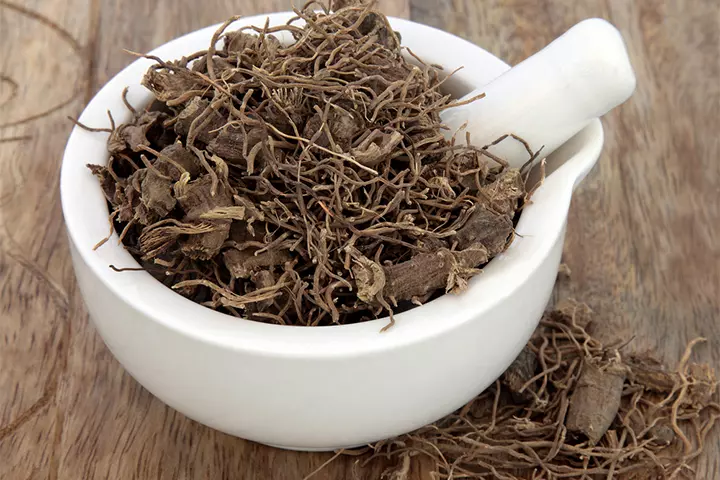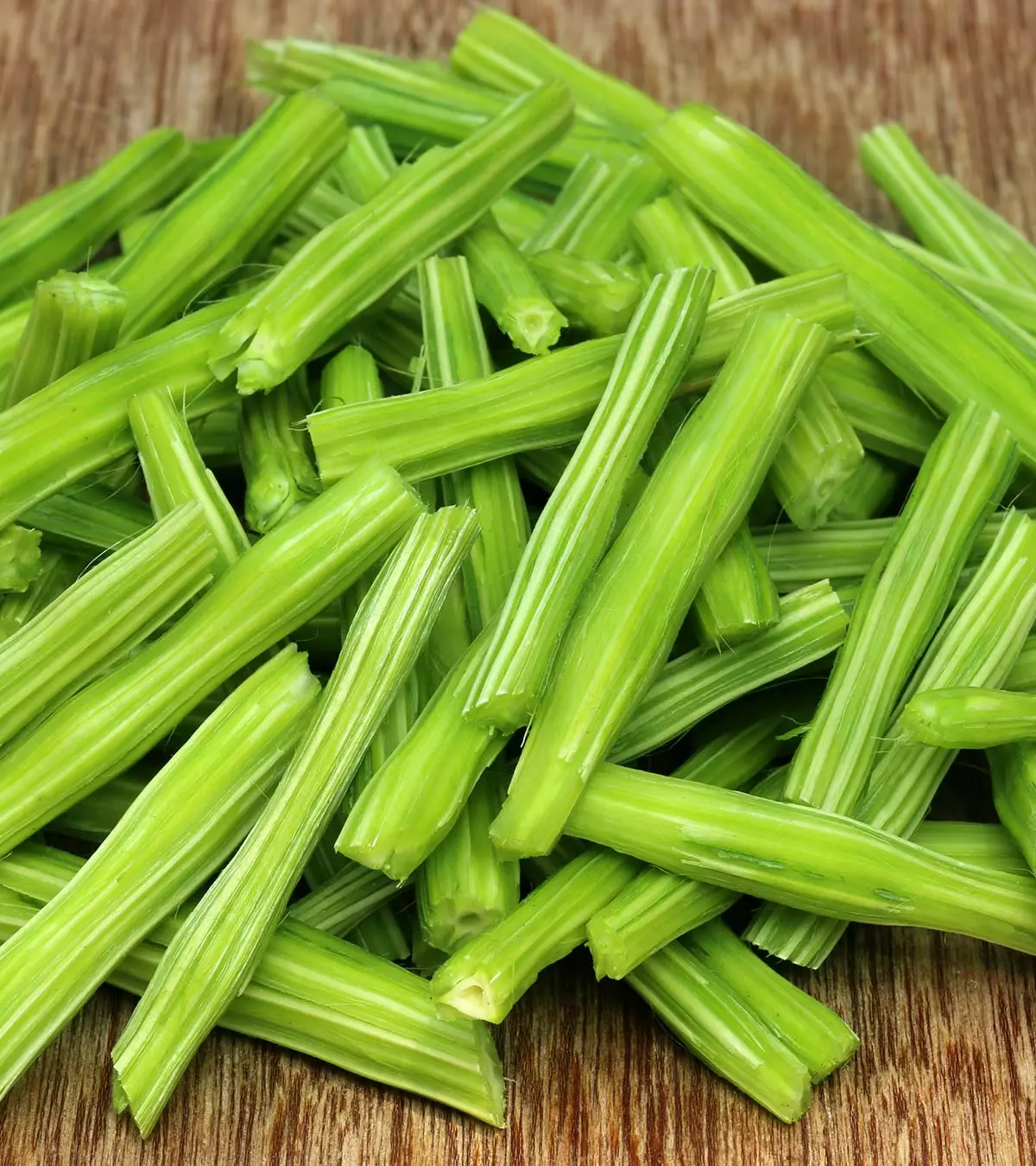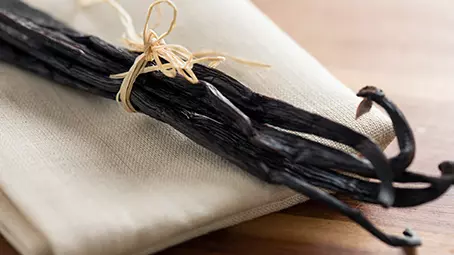
Black cohosh is a flowering plant species native to the eastern region of North America (1). You may have heard of the use of black cohosh for labor induction and may be wondering if it is true. Although there isn’t much research suggesting the positive effects of black cohosh in inducing labor, it is sometimes used for this purpose. According to some studies, this method of inducing labor was used by almost 45% of midwives to induce labor in pregnant women (2). However, it is advised not to disturb the natural process and timing of labor to avoid unforeseen complications for the mother and the baby. Also, it is critical to weigh the potential benefits and risks associated with the use of black cohosh for labor induction. Read on to know more about black cohosh, including its use, benefits, and possible side effects that might follow if not used under proper supervision.
Key Pointers
- Black cohosh is commonly used to induce uterine contractions.
- It can be consumed in the form of capsules or mixed with beverages.
- Taking black cohosh before the due date can pose a risk to the health of both the mother and the baby.
- Consulting a doctor prior to consuming black cohosh is recommended to prevent any complications.
What Is Black Cohosh?
Black cohosh may act as a uterine tonic. It is being used by Native Americans to treat several conditions, including kidney problems, malaria, sore throat, and menstrual cramps, and to induce labor (12). In the case of labor induction, black cohosh is believed to trigger uterine activity or contractions and stimulate labor and childbirth. According to the research reports published in June 1999, 45% of midwives included blue and black cohosh as one of the foods to induce labor in pregnant women (3).
 Point to consider
Point to considerHow To Use Black Cohosh To Induce Labor?
If you are considering inducing labor and parturition with black cohosh, you must have a word with your doctor first. It is essential you are well informed and do everything under supervision to stay safe and healthy.
Here are some things you ought to know:
- If you take black cohosh before your term, you may be in danger. You can also put at risk the health of your baby. So, be very careful and try this herbal medicine only under the supervision of your doctor.
- You need five drops of black cohosh to promote the ripening of your cervix. This may regulate contractions and induce your labor.

- You can repeat the process after an hour if you find no changes.
- You can add the black ones with the blue variants for increased effectiveness. A combination of the two herbs can help induce your labor pains.
 Did you know?
Did you know?Induction Of Labor
To be on the safer side, it is always better not to indulge in any practices that disrupt the natural process. You must avoid any techniques until you reach the 40th week of your pregnancy.
- Last few weeks of your pregnancy are crucial for the development of the brain of your baby.

Chrissie, a blogger and a mother from Louisville, KY, United States, shares her labor induction experience, saying, “What I found was that the herbs my midwife was recommending– blue & black cohosh– would not force a labor on an unready cervix or baby, but would rather help coordinate the efforts my body was already naturally making.” Since she was already in pre-labor for two weeks, she decided to take cohosh and further shares, “Since I was already contracting, we agreed to start with just the herbs. So at 10 o’clock Sunday morning, I put the first 2 1/2-droppers of the cohosh tinctures under my tongue…Every subsequent hour, on the hour, I took a full dropper of each…By 4 pm I was putting the tinctures into a few ounces of pineapple juice (also good for labor induction). Contractions were certainly coming…” Later that night, she gave birth to a baby boy in a birth center (i).
Warnings:
Since it is all about you and your unborn baby, you cannot afford to take even the smallest of risks. If you use black cohosh, you must be well aware of the risk factors associated with it. Here are the common ones you should keep in mind:
- The FDA does not recommend use of any types of herbal supplements in pregnancy (4).
- You cannot be sure that the products you purchase shall contain all the ingredients listed on the label.
- The quality of herbal products can vary significantly between manufacturers which can impact the safety and efficacy of the products.
- Sometimes, excess consumption of black cohosh may lead to side effects, such as dizziness, headaches, decreased heart rate, vomiting, nausea, joint pains, and breathlessness (13).
- A few studies also reported liver toxicity with the use of black cohosh; however, this claim is not well-established (13).
- Black cohosh must be avoided if you are suffering from liver disorders or breast cancer, states the National Institutes of Health (5).

Frequently Asked Questions
1. What should I discuss with my doctor before using black cohosh for labor induction?
Before you take black cohosh for labor induction, make sure to discuss your complete medical history with your gynecologist. This includes any health condition, medications that you’re taking currently, and gestational health, to assess the safety and appropriateness of using black cohosh.
2. What happens if I take too much black cohosh in pregnancy?
Excess black cohosh in pregnancy can negatively impact maternal health by leading to hyponatremia (decreased sodium levels), per a study published in the National Library of Medicine (6). Changes in mental health status, seizures, and coma are a few complications associated with hyponatremia (7).
A random controlled trial on postmenopausal women found that black cohosh improved sleep in those who complained of insomnia (8). However, not much is known about the effect of black cohosh on pregnant women. Therefore, it is safe to seek a doctor’s advice before its use.
4. How long does it take for black cohosh to induce labor?
The exact amount of time black cohosh takes to induce labor may vary from one woman to another. Generally, the safety and efficacy of black cohosh in inducing labor are not extensively researched. Hence, it is essential to consult a healthcare provider before using black cohosh for labor induction.
5. Can black cohosh be a natural alternative to medical induction methods, and are there any benefits to doing so?
Midwives sometimes use black cohosh as a natural alternative to medical procedures to induce and augment labor. However, it is worth noting that black cohosh’s safety and efficacy for labor induction or augmentation are not well established. Therefore, it is essential to use black cohosh only under medical guidance (11).
6. When should I not take black cohosh?
Ohio-based physician Dr. Kevin Huffman suggests, “For most individuals, black cohosh can be safe at recommended doses, but it should be avoided during pregnancy because it might trigger uterine contractions and lead to miscarriage. Similarly, those with liver disease or a history of liver discomfort should avoid black cohosh, as it may worsen these conditions.”
Some midwives have used black cohosh to induce labor, which is known to stimulate the uterus to contract. However, it is recommended to seek your doctor’s opinion before using any herbs, natural remedies, or alternative medications to stimulate labor since the effects may not be tolerable for all women. In addition, it is recommended to let the labor occur at its pace to avoid complications. Black cohosh use is not regulated by the food and drug administration, so you may look for the ingredients in the products to avoid risks. Also, this herb should not be used in pregnant women with liver problems or breast cancer.
Infographic: Why Black Cohosh May Be Unsafe
Black Cohosh has been used for its postulated ability to induce labor; however, there are concerns about its safety, mainly when used in high doses or for long periods. So, learn about its possible adverse effects before taking it, and consult your doctor before consuming any herbal supplement during pregnancy. Illustration: Momjunction Design Team
Illustration: Black Cohosh To Induce Labor - How To Use It?

Image: Stable Diffusion/MomJunction Design Team
Gain valuable insights on the safe use of black and blue cohosh to induce labor. Get expert advice on recommended doses and strategic timing for best results.
Personal Experience: Source
MomJunction articles include first-hand experiences to provide you with better insights through real-life narratives. Here are the sources of personal accounts referenced in this article.
i. The Birth of our Firstborn Son;https://eowyns-heir.blogspot.com/2012/06/birth-of-our-firstborn-son.html
References
- Actaea racemosa.
https://plants.ces.ncsu.edu/plants/actaea-racemosa/ - Safety and Efficacy of Black Cohosh During Pregnancy and Lactation.
https://www.herbalgram.org/resources/herbclip/issues/bin_331/review44895/ - B L McFarlin et al.; (1999); A national survey of herbal preparation use by nurse-midwives for labor stimulation Review of the literature and recommendations for practice.
https://pubmed.ncbi.nlm.nih.gov/10380441/ - Medicine and Pregnancy.
http://www.fda.gov/consumers/womens-health-topics/medicine-and-pregnancy - Black Cohosh.
https://ods.od.nih.gov/factsheets/BlackCohosh-HealthProfessional/ - Matthew J. Blitz et al; (2016); Severe Hyponatremia Associated with Use of Black Cohosh during Prolonged Labor and Unsuccessful Home Birth;
https://www.ncbi.nlm.nih.gov/pmc/articles/PMC4794442/ - Hyponatremia;
https://my.clevelandclinic.org/health/diseases/17762-hyponatremia - K Jiang et al; (2015); Black cohosh improves objective sleep in postmenopausal women with sleep disturbance;
https://pubmed.ncbi.nlm.nih.gov/26000551/ - Black Cohosh.
https://pubmed.ncbi.nlm.nih.gov/26000551/ - Safety and Efficacy of Black Cohosh During Pregnancy and Lactation.
https://pubmed.ncbi.nlm.nih.gov/26000551/ - Severe Hyponatremia Associated with Use of Black Cohosh during Prolonged Labor and Unsuccessful Home Birth.
https://www.ncbi.nlm.nih.gov/pmc/articles/PMC4794442/#:~:text=Black%20cohosh%2C%20a%20homeopathic%20remedy - Black Cohosh
https://www.nccih.nih.gov/health/black-cohosh - Black cohosh.
https://www.mountsinai.org/health-library/herb/black-cohosh
Community Experiences
Join the conversation and become a part of our nurturing community! Share your stories, experiences, and insights to connect with fellow parents.
Read full bio of Dr. Karla S. Sanchez-Banos
- Dr. Kevin Huffman is a doctor of osteopathic medicine and a board-certified bariatric physician. He is the founder of AmBari Nutrition, a platform for weight loss and dieting products. Dr. Huffman has treated more than 10,000 patients over three decades and is the founder & president of the American Bariatric Consultants.
 Dr. Kevin Huffman is a doctor of osteopathic medicine and a board-certified bariatric physician. He is the founder of AmBari Nutrition, a platform for weight loss and dieting products. Dr. Huffman has treated more than 10,000 patients over three decades and is the founder & president of the American Bariatric Consultants.
Dr. Kevin Huffman is a doctor of osteopathic medicine and a board-certified bariatric physician. He is the founder of AmBari Nutrition, a platform for weight loss and dieting products. Dr. Huffman has treated more than 10,000 patients over three decades and is the founder & president of the American Bariatric Consultants.
Read full bio of Rebecca Malachi
Read full bio of Swati Patwal
Read full bio of Aneesha Amonz


















